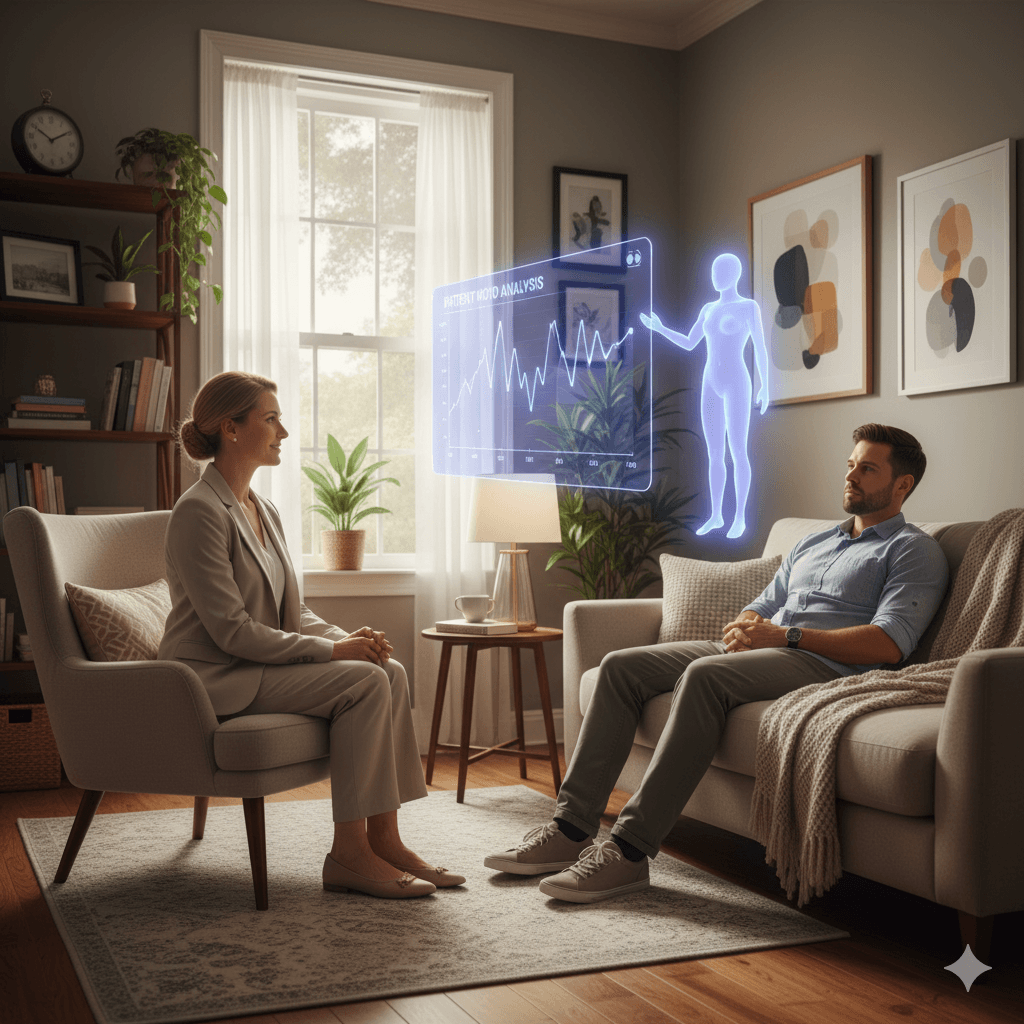Why AI Will Not Replace Therapy: Technology vs Human Empathy

Introduction
In recent years, artificial intelligence has taken a huge leap forward: chatbots, voice assistants, medical algorithms. This raises the question — can AI replace a psychotherapist?
On the one hand, neural networks offer affordable support, 24/7 availability, and the absence of human judgment. On the other hand, therapy has always been more than just words. It is a space of trust, empathy, and deep understanding.
As Carl Rogers, the founder of humanistic psychology, once said:
“The major agent of therapy is not the technique but the genuine encounter between people.”
Table of Contents
- AI and Psychology: What Algorithms Can Already Do
- The Strengths of Artificial Intelligence
- The Key Limitations of AI in Therapy
- The Role of Human Contact and Empathy
- AI as a Helper, Not a Replacement
- The Future of Mental Health: Human–Tech Synergy
- Conclusion
🧩 AI and Psychology: What Algorithms Can Already Do
Today, you can download an app that:
- analyzes emotions from text or voice,
- suggests breathing practices,
- imitates cognitive behavioral therapy,
- reminds you to take medication or see a doctor.
Examples:
- Wysa — chatbot for mental health support;
- Replika — AI-powered virtual friend;
- Youper — AI assistant for anxiety and depression management.
⚡ The Strengths of Artificial Intelligence
AI is indeed useful in therapy:
- 🌍 Accessibility — available anywhere in the world;
- ⏰ 24/7 support — always “on call”;
- 🔒 Anonymity — no fear of being judged;
- 📊 Analytics — AI can track progress and mood changes.
🚫 The Key Limitations of AI in Therapy
But technology has its limits:
- ❌ No deep empathy — algorithms can’t truly feel pain;
- ❌ Risk of misinterpretation — especially in complex clinical cases;
- ❌ No responsibility — AI carries no moral or legal accountability.
As psychoanalyst Nancy McWilliams put it:
“Therapy works when the patient feels that their suffering is shared.”
💬 The Role of Human Contact and Empathy
People come to therapy not only for advice but also for acceptance, attention, and understanding.
This is the healing factor no chatbot can replicate.
🤝 AI as a Helper, Not a Replacement
AI can be a support tool:
- for help between sessions,
- for mood tracking,
- for lowering the barrier to seeking therapy.
But the core role always belongs to the human therapist.
🔮 The Future of Mental Health: Human–Tech Synergy
In 2025, we face a new reality: AI will not replace therapists, but it will help make mental healthcare more accessible and effective.
✅ Conclusion
AI can be a valuable tool in therapy — but not a substitute. Human connection, empathy, and trust are irreplaceable.
👉 Use technology as support, but remember: the best medicine is human empathy.
